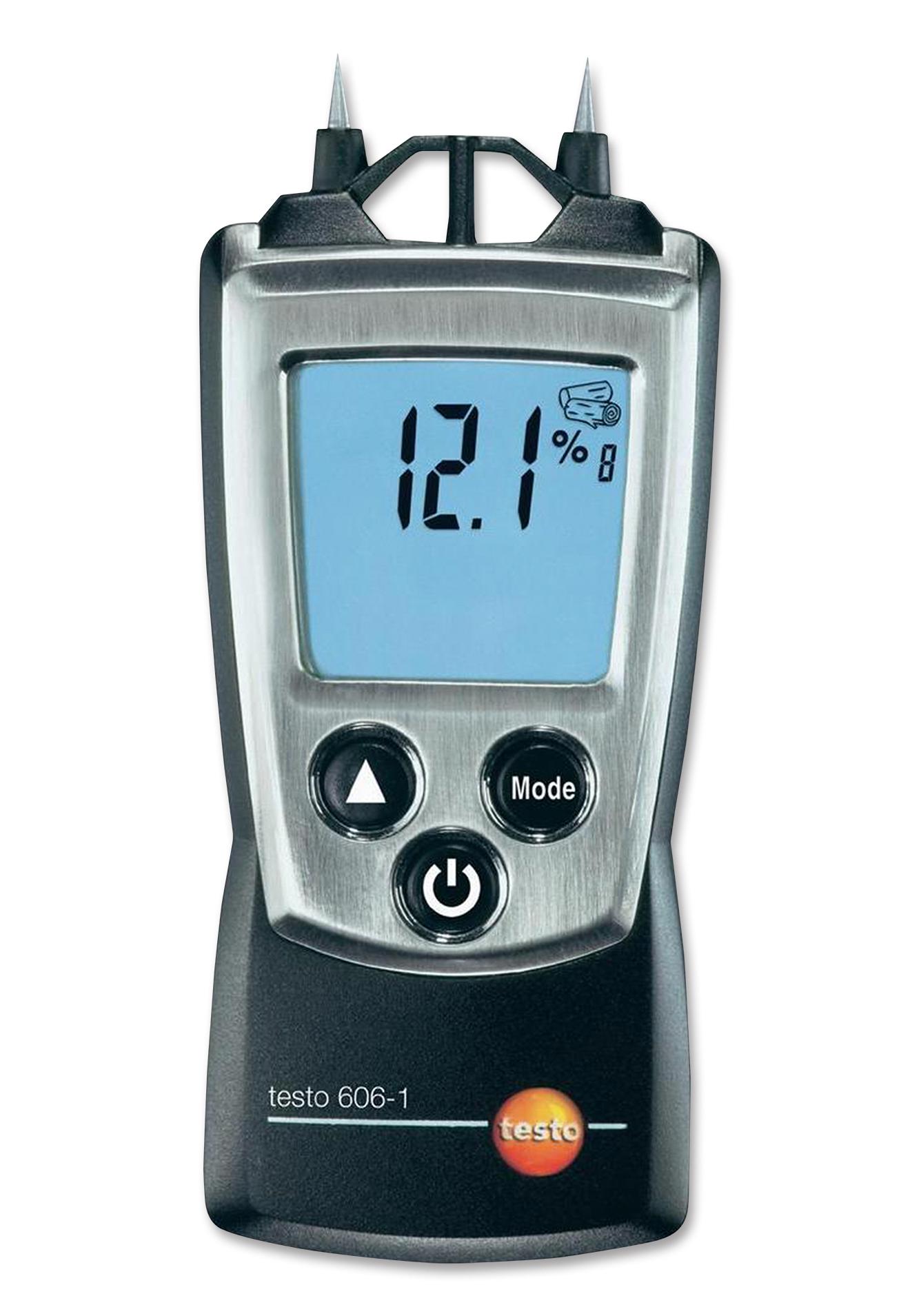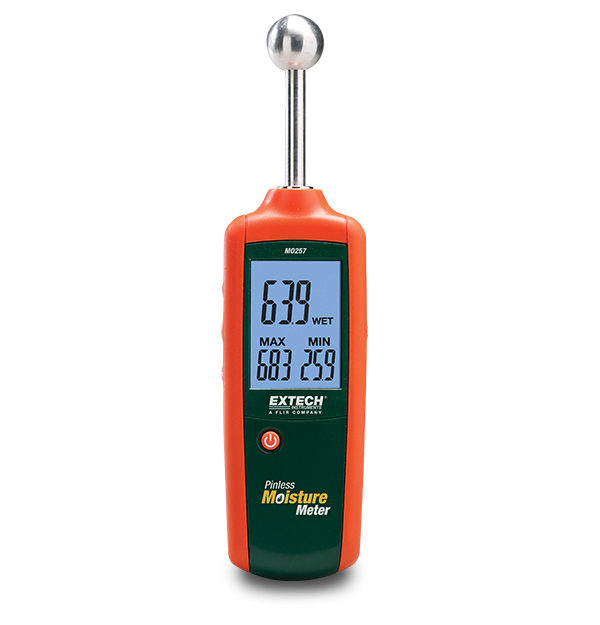How a Moisture Meter Can Help You Keep Optimum Problems in your house or Workplace
How a Moisture Meter Can Help You Keep Optimum Problems in your house or Workplace
Blog Article
The Ultimate Guide to Moisture Meters: A Comprehensive Review and Exactly How They Can Save You Money
In the realm of structure maintenance, construction, and various sectors, the significance of properly gauging wetness degrees can not be overstated. Moisture meters act as crucial devices in finding and keeping track of moisture web content in materials, aiding in avoiding expensive problems and making sure the top quality of products. Recognizing the nuances of different kinds of moisture meters, their applications, and the possible cost-saving benefits they use can be a game-changer for services and professionals alike. Uncovering how these tools can not only simplify processes yet also add to financial savings is a trip worth starting.
Kinds Of Wetness Meters
Various kinds of wetness meters are offered for various applications in numerous markets. One usual kind is the pin-type moisture meter, which measures the electrical resistance between two pins placed right into a product. This kind is ideal for timber, drywall, and various other structure materials. Pinless moisture meters, on the other hand, use electromagnetic sensor plates to scan a bigger location without creating damages to the product's surface area. Moisture Meter. These meters are ideal for quickly examining wetness degrees in big areas such as wall surfaces and floors.

Infrared wetness meters gauge the thermal residential or commercial properties of a material to establish its moisture material non-invasively, making them valuable for applications where pin or pinless meters may not be appropriate. Recognizing the various kinds of moisture meters offered can assist sectors choose the most proper device for their specific wetness dimension demands.

Benefits of Making Use Of Moisture Meters
Dampness meters offer indispensable advantages in accurately keeping an eye on and analyzing moisture degrees in varied materials and environments (Moisture Meter). One of the main advantages of making use of moisture meters is the prevention of possible damages created by excess dampness. By spotting and attending to high wetness degrees beforehand, moisture meters help to stop mold growth, rot, and structural damage in buildings, conserving both time and cash on repairs. Furthermore, wetness meters aid in making certain the top quality of materials during building or manufacturing processes. By accurately determining wetness material, these devices assist preserve the stability of timber, drywall, concrete, and various other materials, decreasing the risk of failings or issues.
In addition, using dampness meters can lead to increased power performance. In agricultural setups, moisture meters play a critical role in enhancing plant yields by allowing farmers to keep an eye on soil wetness degrees and make educated irrigation decisions.
Just How to Pick the Right Dampness Meter
Choosing the appropriate wetness meter involves thinking about key aspects such as material compatibility, measurement variety, and calibration precision. When selecting a moisture meter, it's important to make certain that the meter is suitable for the details material you will certainly be screening. Various materials have varying electrical residential properties that can influence moisture readings, so selecting a meter developed for your material is important for accurate results. Additionally, think about the measurement series of the wetness meter. Make sure that the meter can identify moisture levels within the range required for your applications. Calibration accuracy is another crucial element to keep in mind. Go with a wetness meter with trustworthy calibration to ensure precise and consistent analyses. Some meters may require periodic calibration adjustments, so understanding the calibration procedure is very important. By meticulously evaluating these elements, you can choose check here a moisture meter that fulfills your requirements and offers accurate dampness measurements for your projects.
Proper Strategies for Moisture Meter Use

Expense Cost Savings With Moisture Meter Applications
Exactly how can the tactical application of wetness meters lead to significant expense savings across numerous markets? In the farming industry, dampness meters aid in establishing the ideal time for redirected here collecting plants, avoiding excess or over-drying wetness that can influence the final item's top quality.
Likewise, in building and construction, moisture meters aid avoid pricey damages by identifying moisture degrees in structure materials, such as wood or concrete, which can lead to structural problems otherwise attended to promptly. By determining trouble areas early on, professionals can take restorative steps to prevent considerable repairs or substitutes, inevitably conserving money and time.
In addition, in the food handling industry, wetness meters are crucial for keeping track of product high quality and making certain conformity with safety policies. By precisely determining dampness web content in foodstuff, producers can stop perishing, keep quality, and lower waste, resulting in substantial cost savings. On the whole, the tactical application of wetness meters is a useful financial investment that can cause considerable expense reductions and boosted efficiency throughout numerous sectors.
Verdict
In verdict, wetness meters are useful devices for identifying and measuring dampness degrees in various materials. By making use of the ideal wetness meter and following proper strategies, individuals can efficiently avoid costly problems triggered by excess moisture. Spending in a top quality wetness meter can result in significant price savings in the long run by recognizing prospective issues early on and making it possible for timely remediation. Inevitably, wetness meters are important tools for preserving the integrity and durability of structures and informative post products.
Moisture meters offer as important devices in spotting and checking moisture material in products, aiding in stopping pricey damages and making sure the quality of products. Infrared wetness meters measure the thermal properties of a material to establish its moisture content non-invasively, making them beneficial for applications where pin or pinless meters might not be ideal.Moisture meters provide very useful advantages in precisely analyzing and monitoring dampness levels in diverse materials and atmospheres. In farming setups, dampness meters play a crucial role in optimizing crop yields by enabling farmers to monitor dirt wetness degrees and make educated watering choices.In verdict, dampness meters are beneficial tools for identifying and gauging dampness degrees in numerous products.
Report this page